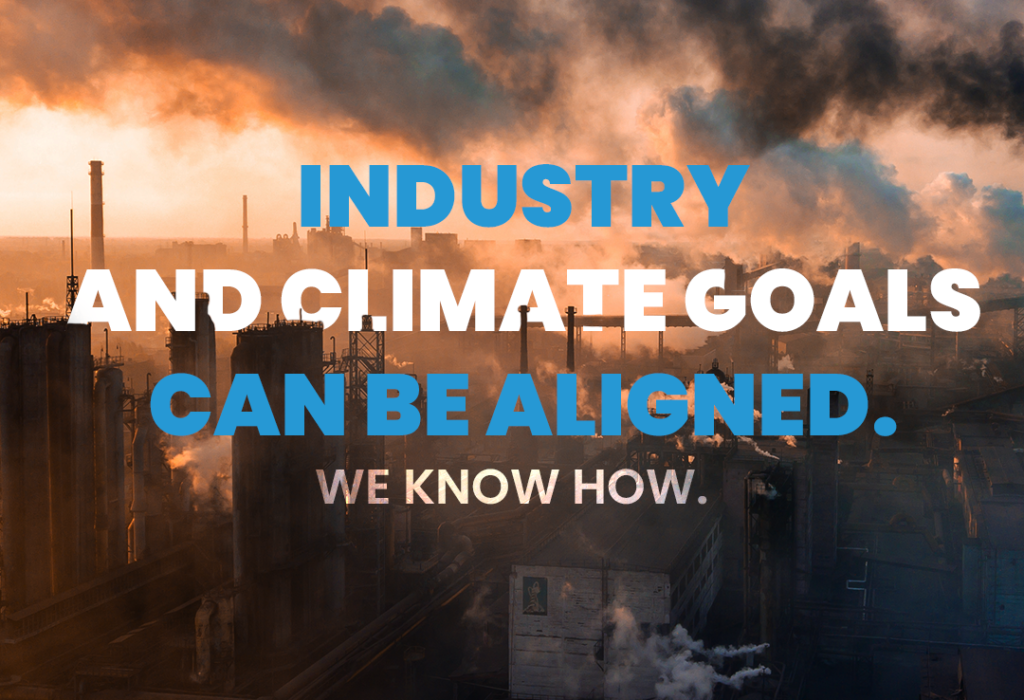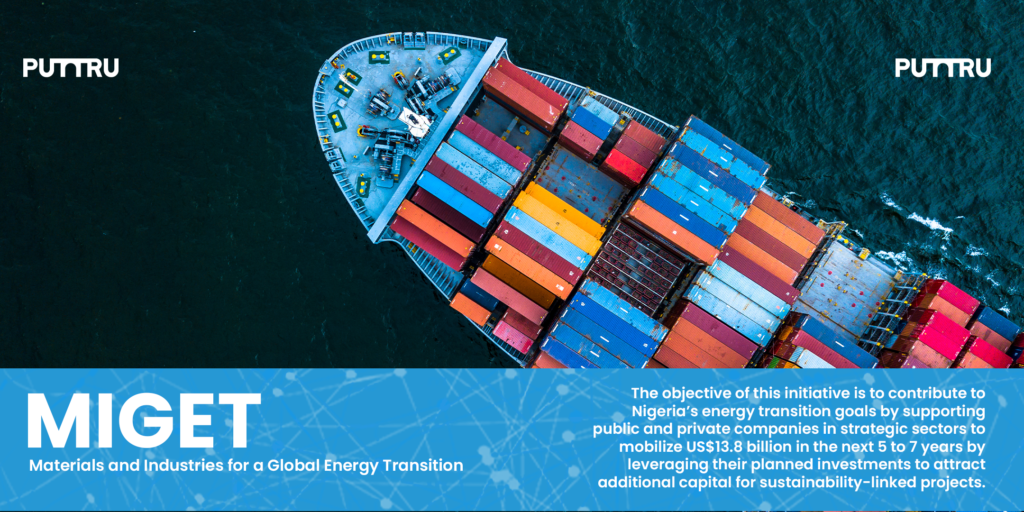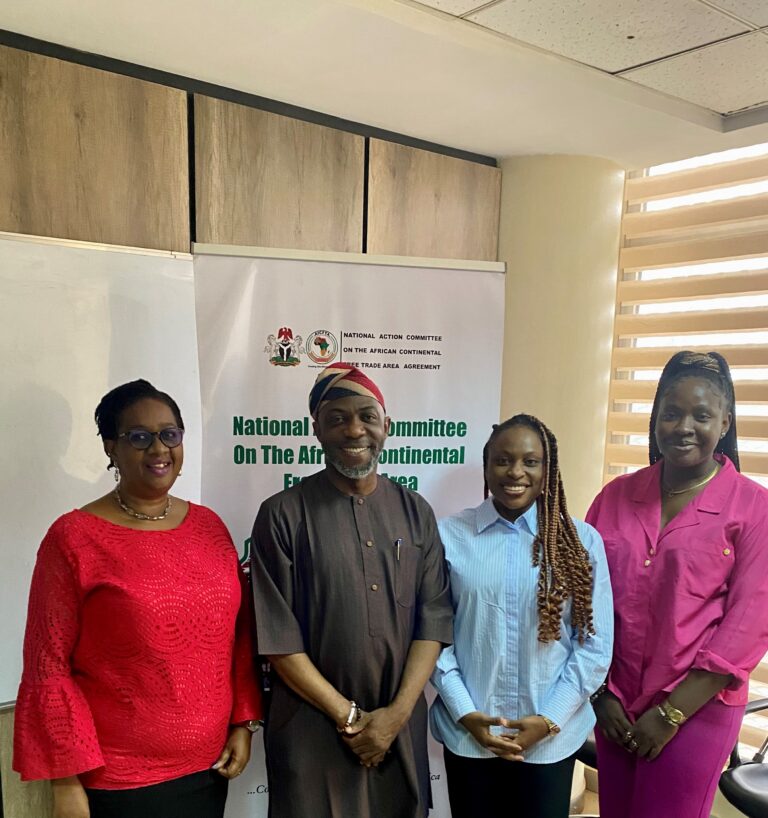This article was originally published in the Nigerian newspaper Daily Times on 15 June, 2023, under the heading “Climate Justice: How Nigeria can make sense of her carbon market”.
Why carbon markets matter
If you haven’t realized it yet, global trade will increasingly serve as a tool for environmental regulation, as we emphasized throughout the past year.
On May 16, 2023, the European Union (EU) published its regulation EU 2023/956, which established the carbon border adjustment mechanism, also known as CBAM. The EU’s objective with CBAM is to establish a standardized carbon price for goods produced within the Union and those imported into it. This means that the carbon price in Europe must be equivalent to the carbon price in third countries, even if the latter has a lower carbon price compared to the EU. The EU achieves this by ensuring that if goods imported from third countries come with a lower carbon price, the importer must purchase CBAM certificates to cover the difference between the carbon price in the country of origin and the carbon price in the Union. The price of CBAM certificates is tied to the price of allowances under the EU emission trading scheme (ETS) on a weekly basis (Article 21.1). The EU claims that “The CBAM is a climate measure intended to support the reduction of global greenhouse gas emissions and prevent the risk of carbon leakage, while ensuring compliance with World Trade Organization law” (Article 15).
The regulation provides a list of third countries exempted from the CBAM regulation as well as certain conditions for other third countries to meet in order to be exempted from the regulation (see Annex III). According to a review by Sullivan and Cromwell LLP, South Korea, Turkey, Australia, China, and India have expressed dissatisfaction with the EU CBAM. In fact, according to the review, China and India are considering taking steps to challenge the CBAM as they see it as “unduly protectionist, including the possibility of launching a legal challenge in the WTO tribunal”.
In this article, we caution that in a future where the Carbon Border Adjustment (CBA) mechanism (or CBAM) will have an impact on international trade, Nigeria must critically consider the implications of a carbon market heavily shaped to export carbon credits.
As we explained in Part One of this series, African countries must focus on internal considerations. While exporting credits may seem appealing, decisions should be guided by a cost-benefit analysis, taking into account whether this option or utilizing emission savings to improve the country’s emission profile for industrialization should be pursued. Later in the article, we discuss our proposal of a zero-coupon bond-type instrument to enable Nigeria to monetize her atmospheric environment, transforming this into a capital-raising tool to promote sustainable industrialization. We have not taken into consideration the EU CBAM as we wait for WTO’s response on this new regulation.
Nigeria to join climate big league
The polluter-pays-principle in environmental action has often been used to advocate for transfer of climate finance from advanced economies to developing countries on the premise that advanced economies are responsible for the changing climate. Thus, the Clean Development Mechanism (CDM) or the international voluntary carbon market could be considered as an instrument that takes into consideration the unequal contribution of advanced and developing economies to climate change, equitably sharing responsibilities between parties, to the extent possible. Now that a developing country like Nigeria is moving to penalize emissions through a price on carbon, one could say that Nigeria is now joining the climate big league – for better or worse.
…a successful sustainability plan for climate and energy must be married with achieving wider macroeconomic outcomes.
One backdrop: Industrialization and cutting emissions
The country’s Nationally Determined Contributions (NDC) notes that Nigeria is unconditionally committed to a 20% reduction of her greenhouse gases emissions (GHG) by 2030 compared to the business-as-usual scenario (NDC, 2021). Furthermore, as shown in the modelling presented in the 2021 NDC document, Nigeria’s capacity to meet its GHG reduction targets are sensitive to gross domestic product (GDP). The document notes that GHG emissions are markedly reduced when GDP growth is pessimistic, and emissions increases with strong GDP growth (NDC, 2021). Moreover, if a factor like population was introduced to the equation, we would likely see population having a positive impact on GDP growth in Nigeria, and hence GHG emissions. This is why carbon tax must make sense from a socio-economic standpoint first for Nigeria.
Another backdrop: Trade, energy and climate change
During the twenty-seventh (27) United Nations Conference on Climate Change, we, working with key ministries, departments and agencies in Nigeria, launched the white paper on Trade, Energy and Climate Change. Among others, the white paper demonstrates that Nigeria’s low productive capacity, especially in relation to the country’s population is shrinking any room for sustainable economic development and any real plans for reaching a net-zero status. With inflation being high and persistent, and its accompanying effects, the white paper emphasizes the uncomfortable truth that a successful sustainability plan for climate and energy must be married with achieving wider macroeconomic outcomes.

Making sense of a carbon market for Nigeria
As the Nigerian government has taken a position to establish a carbon market and regulate/penalize emissions all hands must now be on deck to realize this vision.
Environmental regulation aligning with the polluter-pays-principle is not new for Nigeria. From decades-old forest laws penalizing unsustainable forest exploitation to legal codes to limit gas flaring, the polluter-pays-principle is well embraced here. However, carbon market as a form of environmental regulation in Nigeria is treading new grounds. Specifically, a carbon market involving an emission trading system between regulated entities and, thus, relying on the forces of demand and supply, for environmental regulation to be effective.
As a market-based instrument, we know that there are conditions that help markets performance well and there are conditions where markets could become inefficient and ineffective – low competition, information asymmetry, and others.
Thus, to make sense of a carbon market for Nigeria we propose that one must look at it from the lens of three questions, together: option, market and commodity.
…to make sense of a carbon market for Nigeria we propose that one must look at it from the lens of three questions, together: option, market and commodity.
The Option Question
Nigeria has the options of (1) prioritizing the country’s participation in the international voluntary carbon market by creating an enabling environment for exports of carbon credits from Nigeria to be in high demand by entities abroad, and (2) establishing a national market where carbon emissions is taxed, emission allowances are allocated and emissions permits can be traded between local market actors (i.e., entities in Nigeria that are regulated and penalized for carbon emissions in excess of their allowances).
We know that Option 2 is where Nigeria is heading, while not neglecting Option 1. The question is: what then is the perfect balance between Option 1 and Option 2 for Nigeria to benefit from her carbon offsets?
The Market Question
Yes, Options 1 and 2 are not mutually exclusive. However, for Option 2 to work, then these conditions must exist:
- Large enough emissions – realistically, there is part of environmental pollution that can be avoided and there is another part that cannot – technology and technical processes play a role, among others. For example, some know that zero gas flaring is a myth as some flaring is needed as part of the production process. So, in essence, the question is what is driving energy demand, consumption and emissions and what can be avoided? If what can be cost-effectively avoided is tangible enough, then the mechanics of trading emissions as a market instrument can work optimally and can be lucrative.
- Large enough energy/carbon intensive entities – this one ties to the condition above and concerns the question of volume, i.e., do we have energy/carbon intensive industries who will be the target of this regulation? How many of these companies will continue to remain in operation if emissions are taxed, knowing that increased tax can either be passed on the consumers or will lead to companies folding up.
- Large enough number for competition – bringing together condition (i) and (ii) the question here is do we have enough players in the market for competition to be present? For carbon tax and emissions trading to work simultaneously, carbon tax needs to be higher than the cost of cutting down emissions (for company A) and the price of buying emission permits through the emission trading scheme (for company B). Obviously the larger the number of actors competing to cut down emissions and to sell permits the more effective the market – with conditions (i) and (ii) as perquisites.
The Commodity Question
The commodity is GHG emissions or carbon emission equivalent (CO2eq). For the general public, the preferred term is carbon emissions. Taxing emissions can lead to regulated entities adopting cleaner production practices, installing emission removal technologies, adopting more energy efficient technologies, etc. The expected results are emissions reduction. The unintended, but probable, effect is increased costs of production – which could either be passed on to the end consumers or, if the end consumers stop using that product due to increased costs, the end of the company.
The commodity question, therefore, are: what effect would this have on consumption in the country’s market, and can the market absorb these costs, bearing in mind that Nigeria needs to increase the level of consumption and local productive capacity to alleviate poverty?
How well those in the driving seat of establishing this market are able to manage the option, market and commodity questions would influence the time frame this happen…
Managing the forces of demand and supply
Ultimately, Nigeria needs to have a national carbon market. How well those in the driving seat of establishing this market are able to manage the option, market and commodity questions would influence the time frame this happens and how effective it is. A pilot phase will reveal a lot and guide on how best to approach things.
The international voluntary carbon market has democratised the benefits of emissions reduction. Through the international voluntary carbon market project developers (or local companies) are able to gain financially from investing in cleaner production and technologies. So, if the national carbon market is not that financially rewarding local companies are not deterred as they can simply produce carbon credits for exports. If conditions do not improve such that local companies see the sense in trading emission permits in the national carbon market, Nigeria’s carbon market will remain theory for the most part.
Why a national carbon market must work for Nigeria
Nigeria needs to cut down emissions while pursuing an aggressive industrialization plan. However, industries for a good part represent most of the hard-to-abate sectors. For Nigeria to keep the unconditional commitment of cutting down emissions by 2030 and beyond, without sacrificing her industrialization plans, would need to rely on accelerating emission reductions in areas that present easy opportunities (increasingly). These reductions can count towards a progressively reduced emission profile for Nigeria and be used to increase the country’s national emission allowances for the benefit of industrialization – creating a net reduction of emissions in Nigeria in total.
If the emission savings are exported as carbon credits, then this counts towards the emission reduction profile of another country, not Nigeria. In a future where Carbon Border Adjustment (CBA) will impact on international trade, Nigeria must think critically about the implications of this.
In a future where Carbon Border Adjustment (CBA) will impact on international trade, Nigeria must think critically about the implications of this.
A proposal for making Nigeria’s carbon market work
There is the private interest and the public interest. Without any legal restrictions imposed by Nigeria on exportation of carbon credits, the private sector will pursue its private interest of profit maximization from its clean production/energy investments. Turning in any carbon offsets toward the public interest of creating a net reduction of emissions in Nigeria will not naturally be of interest to the private sector, except if it benefits the private entity. However, financial incentives are a powerful instrument to encourage the private sector to adopt cleaner options and could, in some cases, be even more effective than command-and-control instruments.
Thus, assuming Nigeria does not impose restrictions on exporting carbon credits, the alternative will be to get the private sector to reduce emissions and transfer ownership of carbon offsets to the government based on a mutual agreement that the private sector will be well compensated at a future date. The mechanics of this may be likened to a zero-coupon bond in some sense.
A zero-coupon bond-type instrument for Nigeria’s carbon market
Our proposal is that the government considers its atmospheric environment as a capital raising instrument. Carbon offsets are assigned financial values and transferred from the carbon off-setter to the competent authority (government) with payment terms agreed (maturity value, rate of interest, number of years until maturity). For this, a long-term maturity of 15 – 30 years should be adopted. The government is able to generate revenue from selling (or giving for free) these carbon offsets to industries operating in Nigeria, allowing them to produce less carbon intensive goods and, hence, be globally competitive in that sense. Ideally, thanks to the effect of net reduction of emissions, this should help the government to market Nigeria as an attractive industrial hub for global companies that want to produce less carbon intensive goods.
Wrapping up
The move to establish a carbon market in Nigeria is a big move and a good step in the right direction. Due to Nigeria’s macroeconomy and unique development demands, there is no room for cut-and-paste carbon market strategies if Nigeria is to have a market that works to the country’s advantage. Learning, experiments and embracing innovation will be critical. Our proposal for a zero-coupon bond-type instrument could give the country an edge if this is pulled off well.
Puttru, as a company, is also preparing for a future where Nigeria monetizes her atmospheric environment, turning it into a capital raising instrument to promote sustainable industrialization. Puttru’s initiative on Materials and Industries for a Global Energy Transition (MIGET) is set to create the critical mass of carbon offsets for a carbon market that aligns with this vision. The initiative targets companies operating in extractive activities; processing, fabrication and manufacturing; transportation (e.g. gas pipeline) or transmission and distribution (i.e. power); and are export oriented. On the basis that investments made by companies in this group have an influential role in directing the trajectory of Nigeria’s energy and climate future, MIGET is supporting them to mobilize funding for sustainability-linked projects. Specifically, this works by channeling investments to increase the uptake of best available technologies (BAT) and discouraging energy and carbon intensive technology choices that may cost less upfront.








